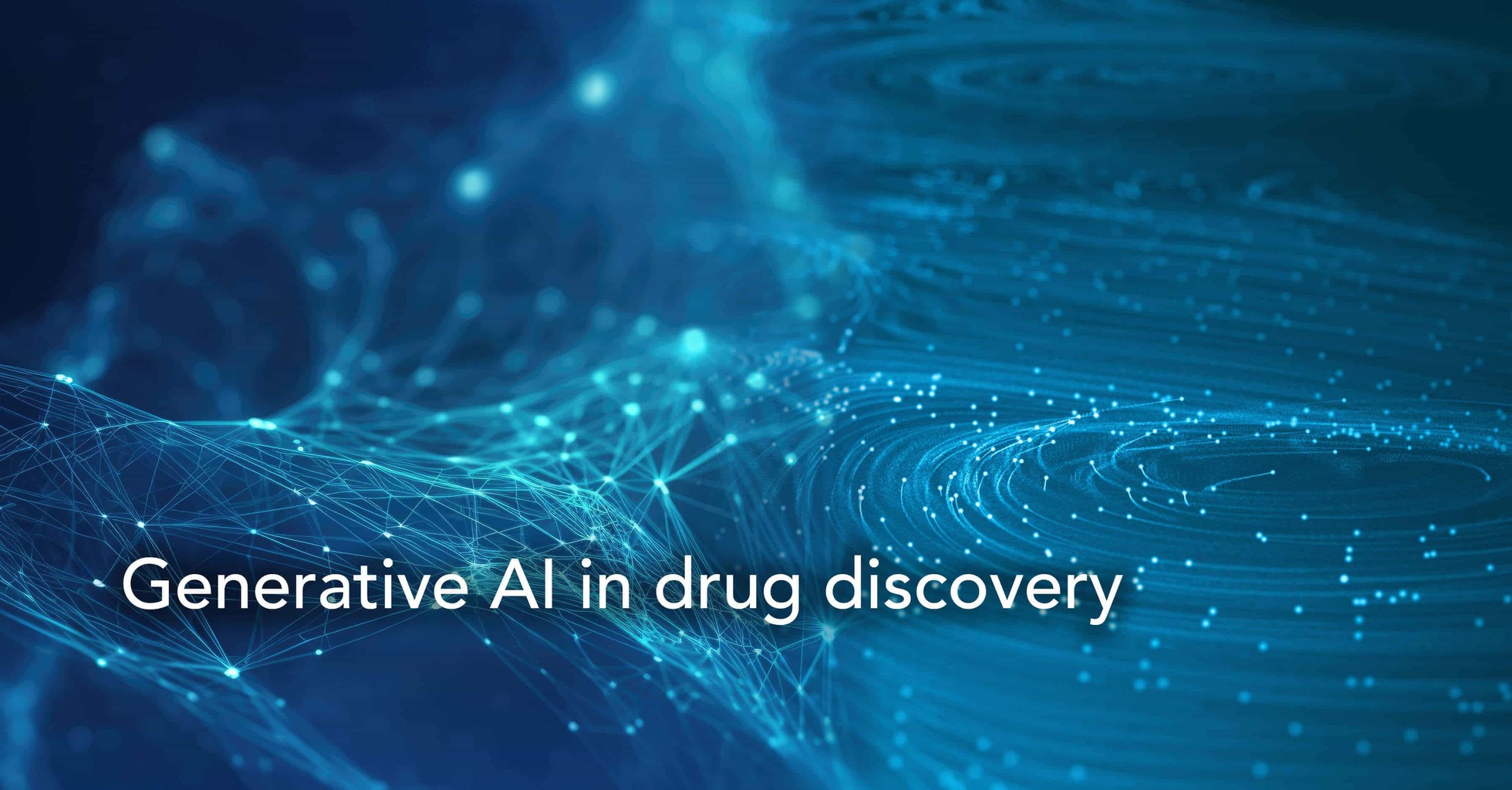
Generative AI in Drug Discovery
In the dynamic world of pharmaceuticals, discovering new treatments for diseases is both a critical mission and a complex challenge. Traditional drug discovery methods are often slow, costly, and prone to high failure rates, taking 13–15 years and over $2.5 billion to bring a single drug to market. However, Artificial Intelligence (AI) is transforming this landscape, offering innovative solutions to accelerate drug discovery and development. In this post, we explore how AI is revolutionizing our drug discovery process, from identifying targets to optimizing clinical trials, and what this means for the future of healthcare.
Understanding AI in Drug Discovery
AI encompasses a range of computational techniques, including machine learning (ML) and deep learning (DL), that enable systems to learn from data, recognize patterns, and make predictions. In drug discovery, AI processes vast datasets—such as genomic profiles, chemical structures, and clinical trial results—faster and more accurately than traditional methods. By integrating data, computational power, and advanced algorithms, AI enhances efficiency, accuracy, and success rates, significantly shortening development timelines and reducing costs.
Applications of AI in Drug Discovery
AI’s transformative impact spans multiple stages of the drug discovery process. Below are key applications driving this revolution:
Target Identification and Validation
AI algorithms analyze biological data to identify potential drug targets, such as proteins or pathways involved in diseases. By sifting through complex datasets, AI pinpoints targets with high precision, reducing the time spent on trial-and-error approaches. For example, AI can analyze genomic data to identify disease-specific biomarkers, guiding researchers toward promising therapeutic targets.
Lead Compound Optimization
Designing effective drug candidates involves testing thousands of compounds, a process that is traditionally labor-intensive. AI accelerates this by predicting the efficacy, toxicity, and other properties of potential molecules before they are synthesized. Deep learning models, trained on datasets of known drug compounds, can generate novel molecules with desirable characteristics, such as solubility and activity, streamlining the development of lead compounds.
Clinical Trial Enhancement
Clinical trials are a critical but costly phase of drug development. AI improves efficiency by predicting trial outcomes, identifying suitable patient populations, and designing optimized trial protocols. For instance, AI can analyze patient data to select individuals most likely to respond to a treatment, increasing trial success rates and reducing costs.
Drug Repositioning
AI enables drug repositioning, the process of finding new therapeutic uses for existing drugs. By analyzing patterns in how drugs interact with different diseases, AI can identify novel applications, significantly reducing development time and costs. This approach proved invaluable during the COVID-19 pandemic, where AI helped repurpose existing drugs to treat the virus.
Case Studies and Examples
AI’s real-world impact is evident in several groundbreaking applications:
- AlphaFold by DeepMind: This AI tool has revolutionized protein structure prediction, a critical step in drug discovery. By accurately predicting the 3D structures of proteins, AlphaFold enables researchers to understand how drugs interact with their targets, accelerating the design of new therapies.
- COVID-19 Response: During the pandemic, AI played a pivotal role in identifying potential treatments. By analyzing vast datasets, AI helped researchers repurpose existing drugs and design new candidates to combat the virus, demonstrating its ability to address urgent global health challenges.
- Cancer and Alzheimer’s Research: AI has identified novel compounds for complex diseases. For example, AI algorithms have discovered anti-cancer compounds and inhibitors for Alzheimer’s-related proteins like BACE1, offering hope for new treatments.
Leading pharmaceutical companies are embracing AI to drive innovation. At our company, we leverage AI to analyze massive datasets, identify new drug targets, and optimize molecule discovery. Similarly, Recursion uses AI to industrialize drug discovery by supporting a larger pipeline of programs with its extensive data corpus. Johnson & Johnson employs AI to streamline patient recruitment for clinical trials, while AbbVie’s R&D Convergence Hub (ARCH) integrates AI to combine data from diverse sources, aiding in the design of targeted treatments.
Challenges and Solutions
Despite its promise, integrating AI into drug discovery presents challenges:
- Data Availability: AI models require high-quality, diverse datasets to function effectively. Limited access to such data can hinder performance. Solution: Data augmentation techniques, such as creating synthetic data, help supplement real datasets, improving model accuracy.
- Ethical Concerns: AI algorithms must be free from bias to ensure equitable outcomes. The “black box” nature of some AI models also raises transparency concerns. Solution: Explainable AI (XAI) is being developed to make AI decision-making processes more transparent, building trust and accountability.
- Integration with Traditional Methods: Blending AI with biological sciences requires seamless collaboration between computational and pharmaceutical experts. Solution: Partnerships between AI researchers and scientists, such as the Merck-Numerate collaboration, ensure effective integration of wet and dry lab experiments.
Future Outlook
The future of drug discovery is deeply intertwined with AI. As technology advances, AI is expected to play an even greater role in identifying novel drug targets, designing innovative compounds, and optimizing clinical trials. Emerging tools like large language models and precision medicine platforms will further enhance personalized treatments, tailoring therapies to individual patient needs.
To fully realize AI’s potential, the pharmaceutical industry must address current challenges through robust data-sharing mechanisms, comprehensive intellectual property protections, and continued collaboration between AI experts and scientists. At our company, we are committed to harnessing AI responsibly, ensuring that our innovations meet the highest standards of safety, efficacy, and ethics.
AI is not just a technological trend; it is a transformative force in the pharmaceutical industry. By accelerating drug discovery, AI enables us to address pressing health challenges more efficiently, bringing life-saving treatments to patients faster. As we continue to explore AI’s capabilities, we are excited about the possibilities it holds for revolutionizing healthcare. Stay tuned as we push the boundaries of innovation to create a healthier future for all.
Disclaimer: Always consult a healthcare professional before making decisions about treatments. The information provided is for educational purposes and reflects advancements.